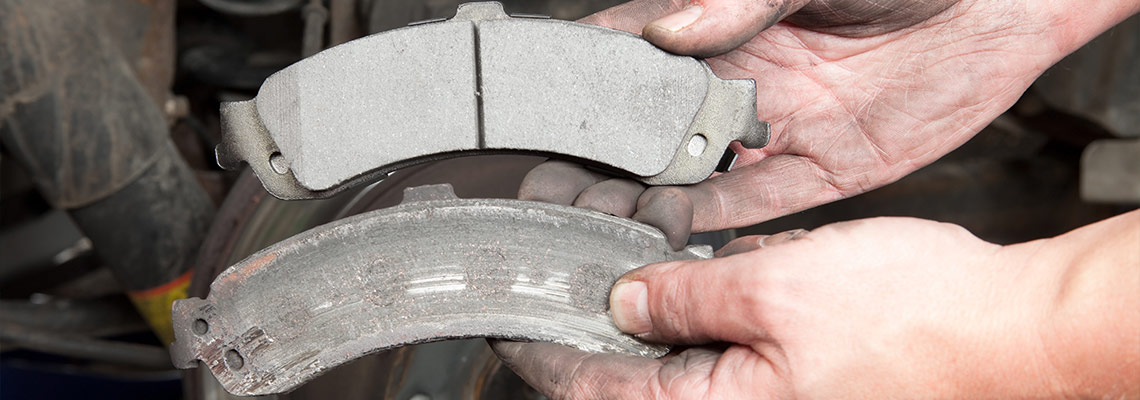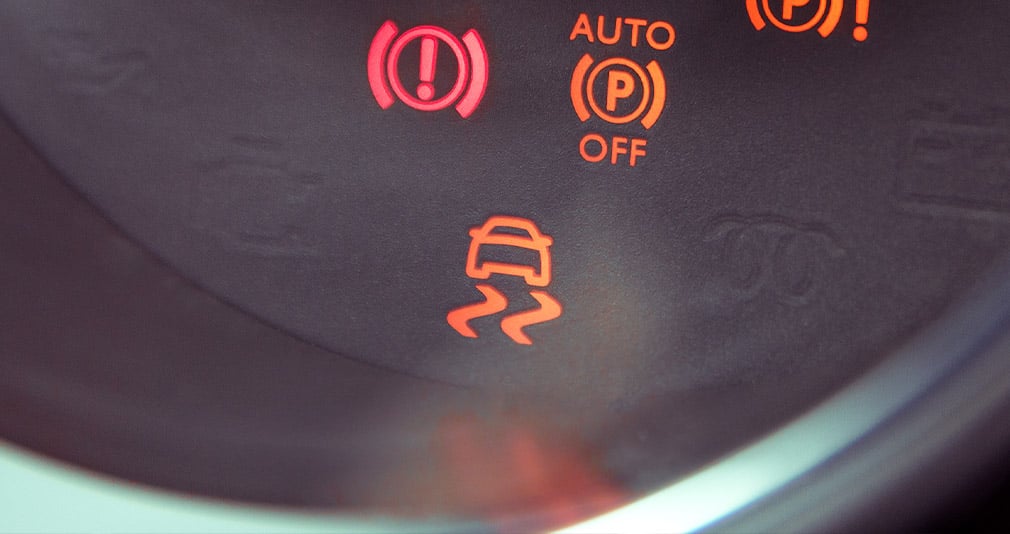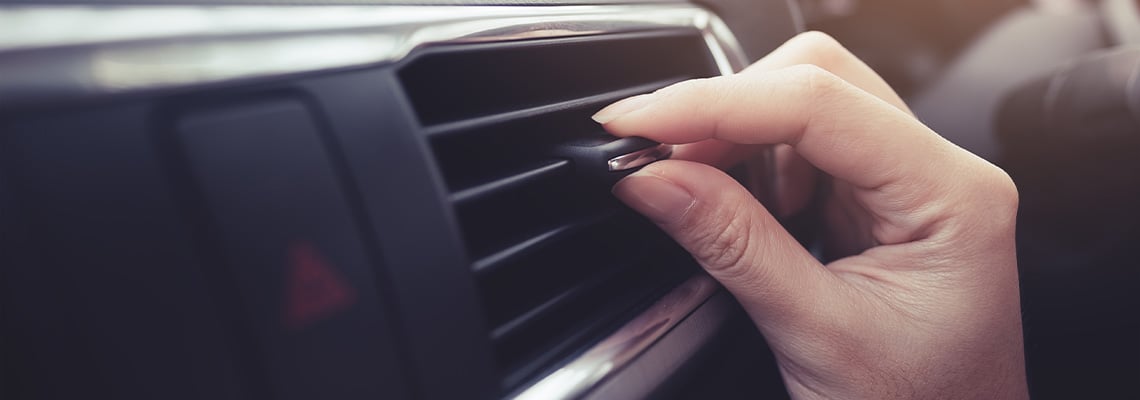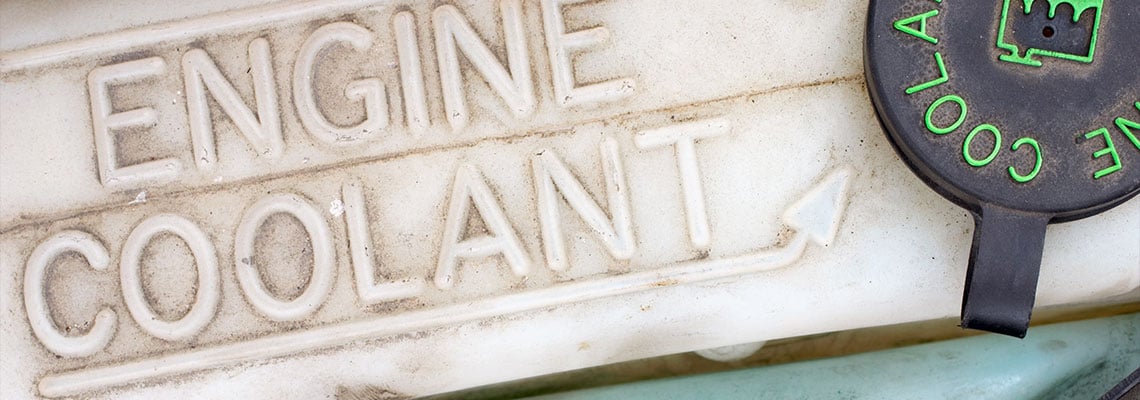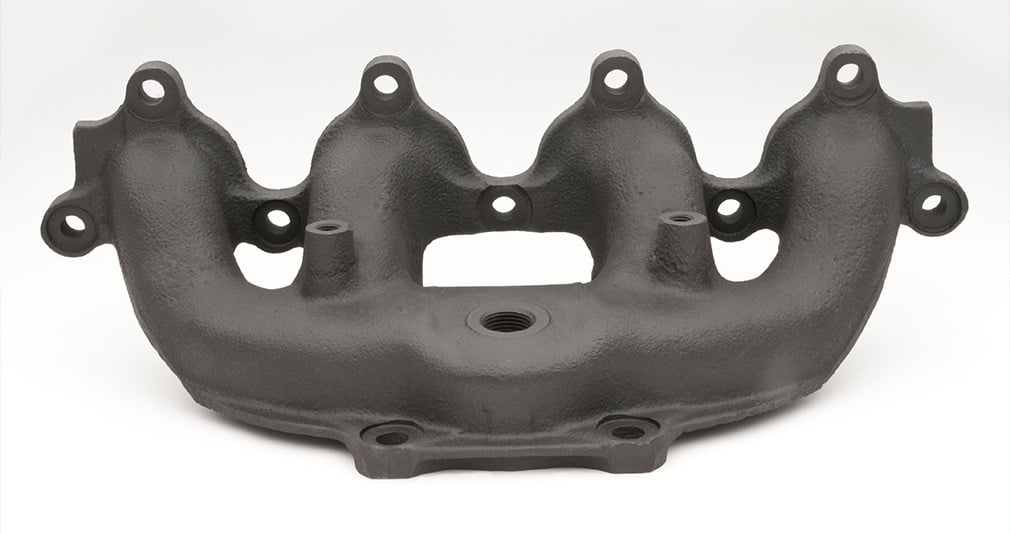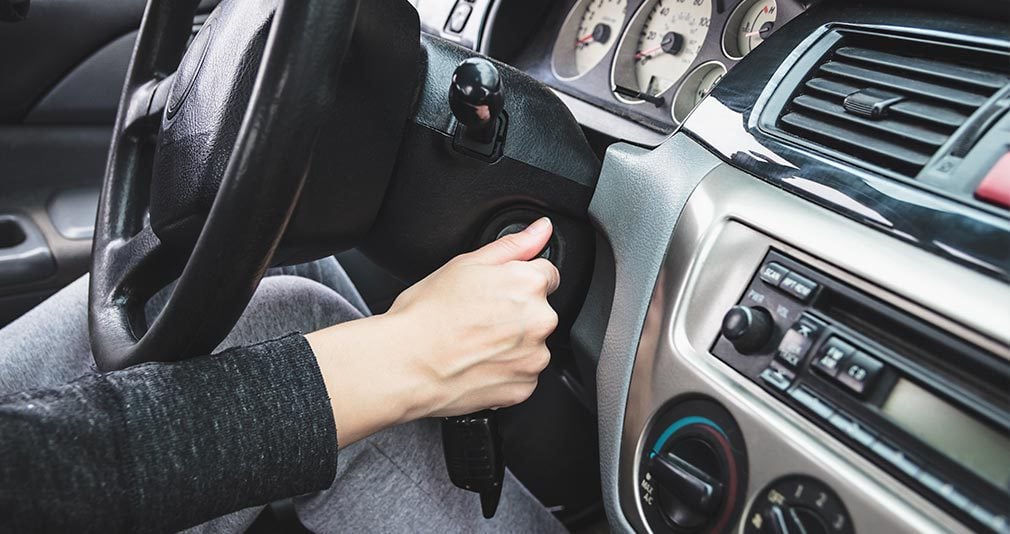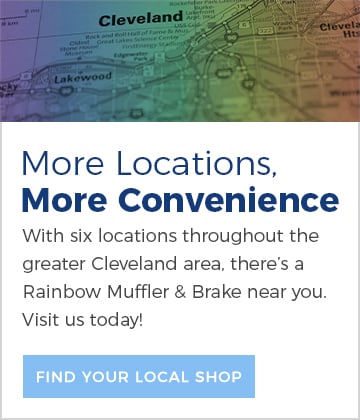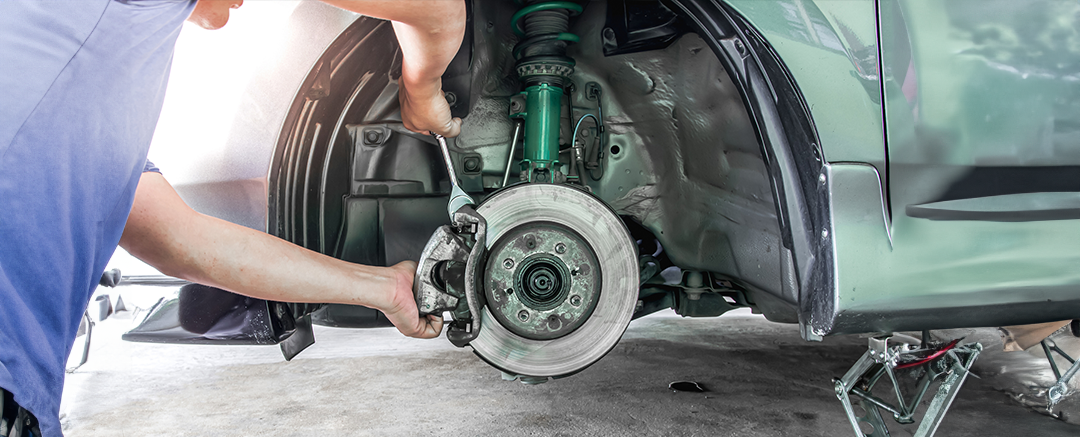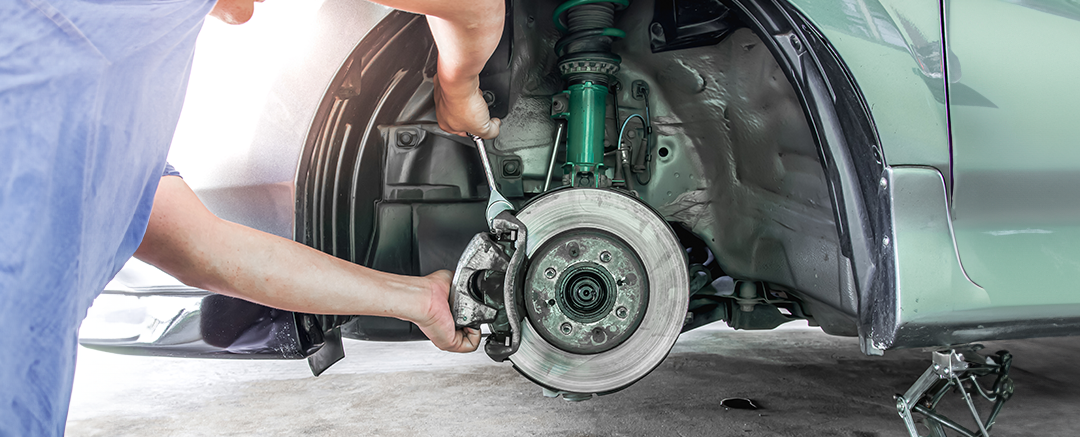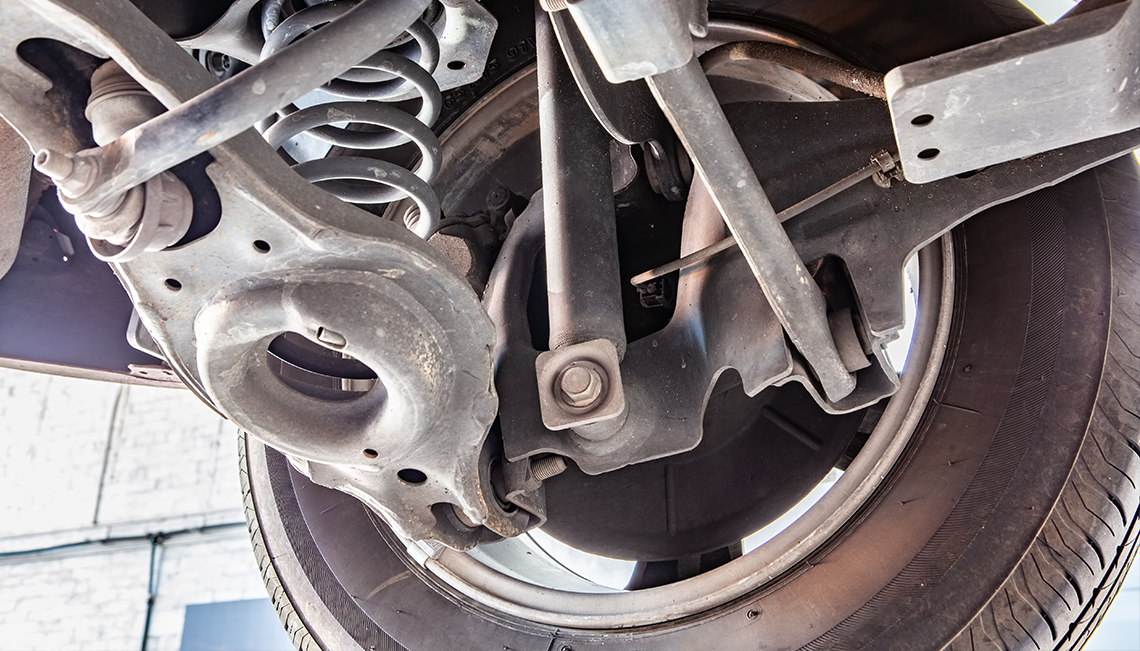Failing brakes aren’t something you can put off; brake repairs need your attention immediately. While many drivers will put off certain repairs for as long as possible, when it comes to your brakes, delaying repairs is dangerous and can even be deadly. According to the National Highway Traffic Safety Administration, nearly one-fourth of car crashes caused by mechanical problems were attributed to brake failure.
Fortunately, brakes rarely fail without giving some warning signs. Knowing what to look for is something that every driver should learn. Taking care of brake problems as they arise will keep the problem from getting worse (which will result in a larger repair bill). It could also save lives.
7 Brake Warning Signs to Learn
In some cases, a squeak or a squeal might not mean anything; it could be that dust or moisture has infiltrated your braking system. But that doesn’t mean you should ignore sounds that you hear when braking. Getting regular brake maintenance can help catch problems before they start, but in between those checkups, here are seven things that you should be watching (or listening) for.
No. 1: Soft or Spongy Brakes
If you hit the brake and the pedal goes all the way to the floor mat, it’s definitely time to call for some Cleveland Ohio brake service. This isn’t something you can put off for later; it means you need service immediately. Normally, your pedal should stop no closer than an inch from the floor and, if you have manual brakes, the distance will be even farther. If your pedal goes to the floor, you may have moisture or air in the braking system, or the master cylinder might need serviced.
No. 2: Your Vehicle Pulls to One Side
If you notice that your car wants to pull to one direction or the other every time you hit the brake, it probably means that either your brake hose has gone bad or that your brake caliper needs checked, because it isn’t applying pressure evenly.
No. 3: You Hear a Metallic Squeal When You Drive
A squeal that stops when you hit the brakes is probably your brake pad wear indicators. These indicators are made of steel and, when the brake pads begin to wear out, the steel makes contact with the rotor and creates that super-high metallic squeal. Resist the urge to turn up the radio and ignore this, because letting it go will lead to rotor damage — which is really going to set your bank account back.
No. 4: There’s a Grinding Sound When You Hit the Brakes
Yes, there are some innocent reasons that you hear a grinding sound when you brake; it could be as simple as having gravel caught in the caliper unit. But it also could be a red flag saying that you need your brakes serviced. If you’ve worn out your brake pads, you might be creating grooves in the brake rotor. Or maybe the brake shoe is rusting and scraping on other metal parts in the vehicle. It could even indicate that there is not enough lubrication in the rear drum brakes. Regardless of what it is, if your brakes are grinding, it’s something you need to have serviced quickly before they run up a bigger bill.
No. 5: Your Steering Wheel Shakes When You Brake
Shaking in the steering wheel is commonly caused by an uneven rotor. This can be the result of rust or just normal wear on the vehicle. It is fairly common in cars that have logged several thousand miles, and ignoring it will only end up costing you more in the long run.
No. 6: You Notice Your Vehicle Is Leaking Fluid
Your brakes get their power from the master cylinder, which also holds the brake fluid. Each time you push on the brake, the brake fluid is forced through piping that creates hydraulic pressure and makes sure the brakes do their job. Don’t ignore this symptom, because if you lose enough fluid, there won’t be enough pressure to activate the brake pads.
No. 7: Your Brake Light Comes On
Sure, this one is obvious, but it’s worth noting because sometimes drivers ignore it. Newer cars have a brake warning light that comes on when there’s a problem, and drivers need to take time to learn what their dashboard lights mean so they’ll know what to do about it.
What Affects the Longevity of Your Brakes?
Of course, the goal for most people is to have their brakes last safely for as long as possible between repairs and maintenance visits. Your driving habits directly affect the lifespan of your brakes, so learn the tricks to make yours last longer — and share these tips with other drivers in your house.
- Avoid stop-and-go traffic as much as possible. City driving is harder on your car and, obviously, the more you use your brakes, the faster they’ll wear down. If you can carpool or find other ways to reduce the amount of time your car spends in this kind of traffic, your brakes will reward you with a longer life. If not, then make sure you’re having your vehicle inspected every year to troubleshoot any problems.
- Don’t ride the brakes. Keeping one foot on the brake most of the time is a bad habit that you’ll pay for. This practice causes faster wear and tear on your brakes and also generates a lot of extra heat — which can warp your rotors.
- Lose aggressive driving habits. Aggressive driving such as jackrabbit starts and slamming on the brakes is hard on your car in many ways; it’s not good for your tires or for your gas mileage. But it is particularly hard on your brakes and will wear them down faster.
- Don’t overload your car. Do you treat your trunk like a storage unit and fill it full of “stuff” you don’t know where to keep? That practice is probably affecting your gas mileage and it also is hard on your brakes. The less weight your car has to carry, the less stress you’re putting on your brakes.
Taking care of your brakes and making sure you get regular brake service is the best way to create a safer environment behind the wheel. Knowing what warning signs to look for and how to reduce wear and tear on your brakes will save you time and money in the long run — and make driving more enjoyable, too.
For a more detailed breakdown of how brakes and associated components work, you can check out our brake parts diagram to learn more.
When it comes to brake repair, don't delay! Our technicians can repair or replace your brakes in a jiff and have your car back up and running to your satisfaction. With our full brake system evaluation, you'll feel safer than ever. Learn more about our services below.

